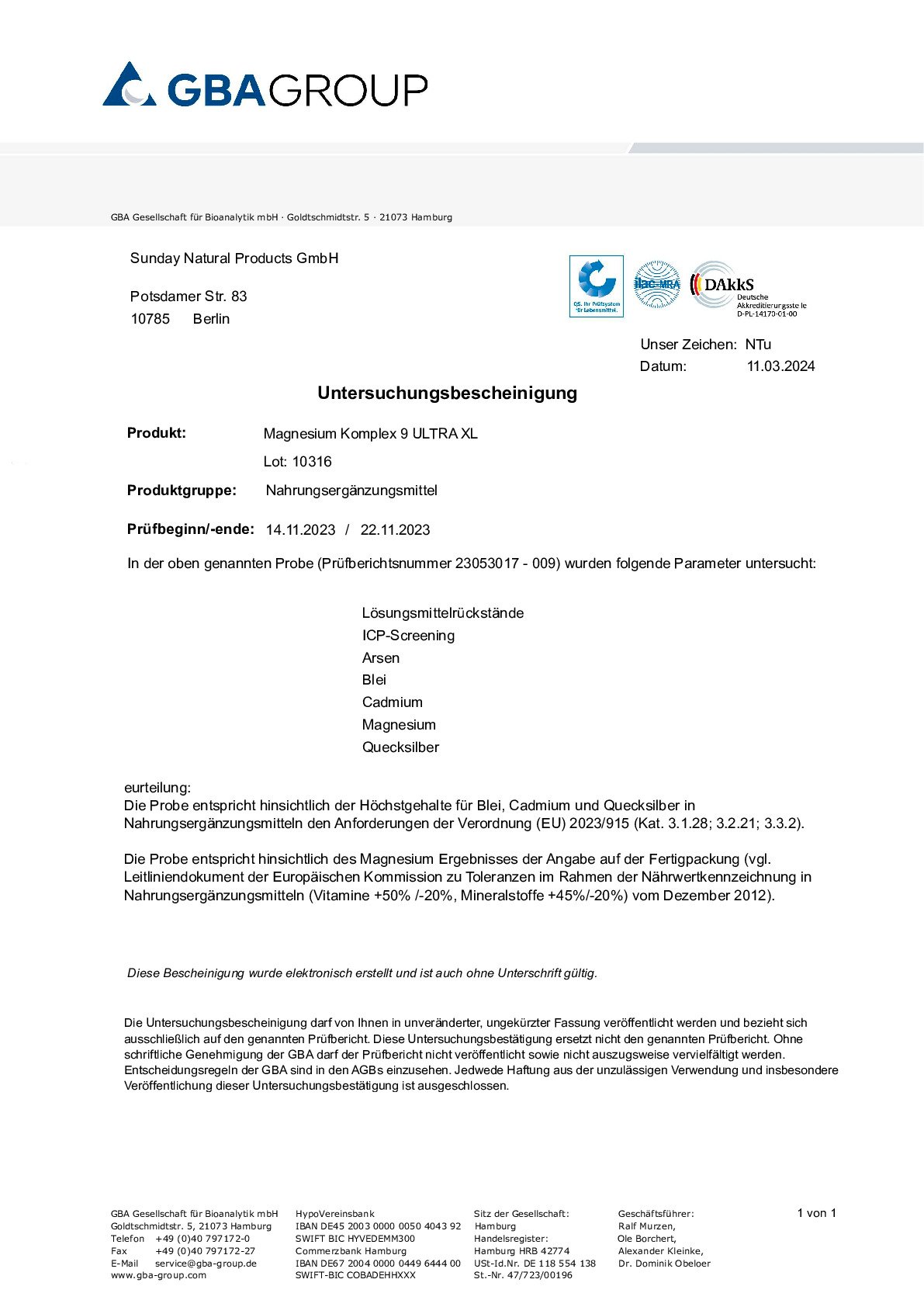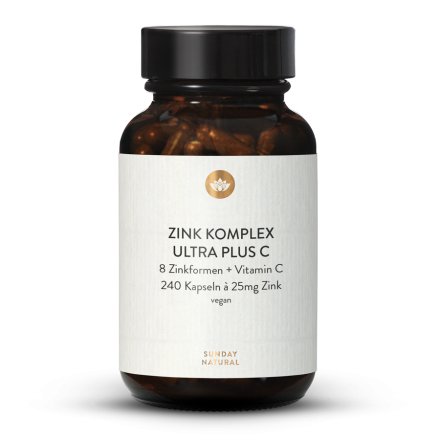Magnesium Complex 9 Ultra
Magnesium Glycinate
Magnesium glycinate is bound to the amino acid glycine. Large amounts of glycine can be found in connective tissue and the brain. Magnesium glycinate is considered to be one of the most bioavailable magnesium compounds and positively contributes to normal protein synthesis, a healthy nervous system and psychological functioning.
Magnesium Taurate
Magnesium taurate is bound to the amino acid taurine. Large amounts of taurine can be found in muscle and eye tissues as well as the brain. Magnesium taurate contributes to the reduction of tiredness and fatigue, normal protein synthesis and normal muscle functioning.
Magnesium Lysinate
Magnesium lysinate is a form of magnesium bound to the amino acid lysine and is characterised by the special properties of L-lysine as well as its extremely good solubility, which particularly promotes absorption.
Magnesium Citrate
There are two types of magnesium citrate, which contain either approximately 7% or 15% elemental magnesium. The trimagnesium dicitrate we use has a high active ingredient content (15%) and is characterised by high bioavailability and absorption rates. Magnesium citrate is base-forming and contributes to energy metabolism, healthy muscles, electrolyte balance and protein synthesis.
Magnesium Malate
Magnesium malate is a salt of malic acid and contributes to normal energy metabolism, the reduction of tiredness and fatigue and normal functioning of the nervous system.
Magnesium Gluconate
Magnesium gluconate is a salt of gluconic acid (fruit acid), which can be found in kombucha. Magnesium gluconate is highly bioavailable and contributes to normal energy production metabolism, normal nervous system function and cell division.
Magnesium Lactate
Magnesium lactate is an organic compound of magnesium with dextrorotatory lactic acid (lactate). Dextrorotatory lactic acid is a natural metabolic product of humans and is also produced by lactic acid bacteria. Lactate is a component of the acid layer of the skin as well as of the lactic acid intestinal environment, serves to nourish butyrate-forming intestinal bacteria and is an important energy supplier for the cells of the intestinal mucosa.
Magnesium Ascorbate
Magnesium ascorbate, also known as buffered vitamin C, is a salt of ascorbic acid (vitamin C). It is very well tolerated and has a high bioavailability.
Mineral Concentrate Concentrace®
The natural mineral concentrate Concentrace®, derived from the water of the unique Great Salt Lake in Utah (USA), contains 72 exclusively naturally occurring ionic minerals and trace elements. It includes 36% magnesium chloride in conjunction with other minerals and trace elements that act as natural cofactors. Due to its rich, natural composition and ionic form, the mineral concentrate exhibits very high bioavailability.
According to the European Food Safety Authority (EFSA):
Magnesium contributes to:
- A reduction of tiredness and fatigue
- Electrolyte balance
- Normal energy-yielding metabolism
- Normal functioning of the nervous system
- Normal muscle function
- Normal protein synthesis
- Normal psychological function
- The maintenance of normal bones
- The maintenance of normal teeth





















